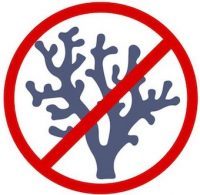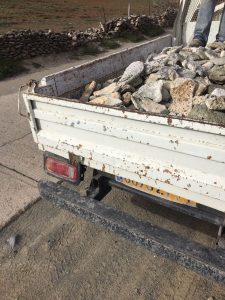DO NOT TOUCH MY CORAL!

We all one day picked up a shell, took some small pieces of coral on the beach. Without knowing it, we may have commited an offense under the law.
Let us be clear : it is not a drama if we only take a piece or two of coral or gorgon stranded on the beach. But it’s very different when this shell-collection is done for a commercial purpose by taking large quantities, as we witnessed last week at Grand Fond.

On Monday, May 22, 2017, as we were driving along the seaside road, we surprised five employees of a construction company collecting dead coral on the beach before loading them in the back of a pick-up truck (as shown in our picture). This coral was intended for a construction site.
PROTECTING OUR BEACHES
Prohibiting the fishing or collection of coral is not intended to restrict any freedom, but is a measure of protection of seabeds and beaches.
Indeed, living corals play a crucial role in the balance of marine biotopes : “Coral reefs serve as ecological shelters for many species. They provide protection and food to various animals, besides the fact that they also serve as a nursery for countless species of fish. It is estimated that 25% of underwater life lives in the reefs. Healthy reefs also help reduce the energy in the waves and reduce beach erosion”.
What is less well known is that dead coral also plays a vital role in building and maintaining our coastline. It’s him who is at the origin of the beautiful beaches that we love so much. White or blond sand often originate from dead corals eroded by water or nibbled by schools of parrot fish that are fond of it.
BE AWARE : if you remove the coral or shells from the beach, you increase the its erosion of the beach, which will eventually disappear completely. Even dead, corals continue to serve a crucial role for our beaches.
THEN, DO NOT TOUCH MY CORAL !